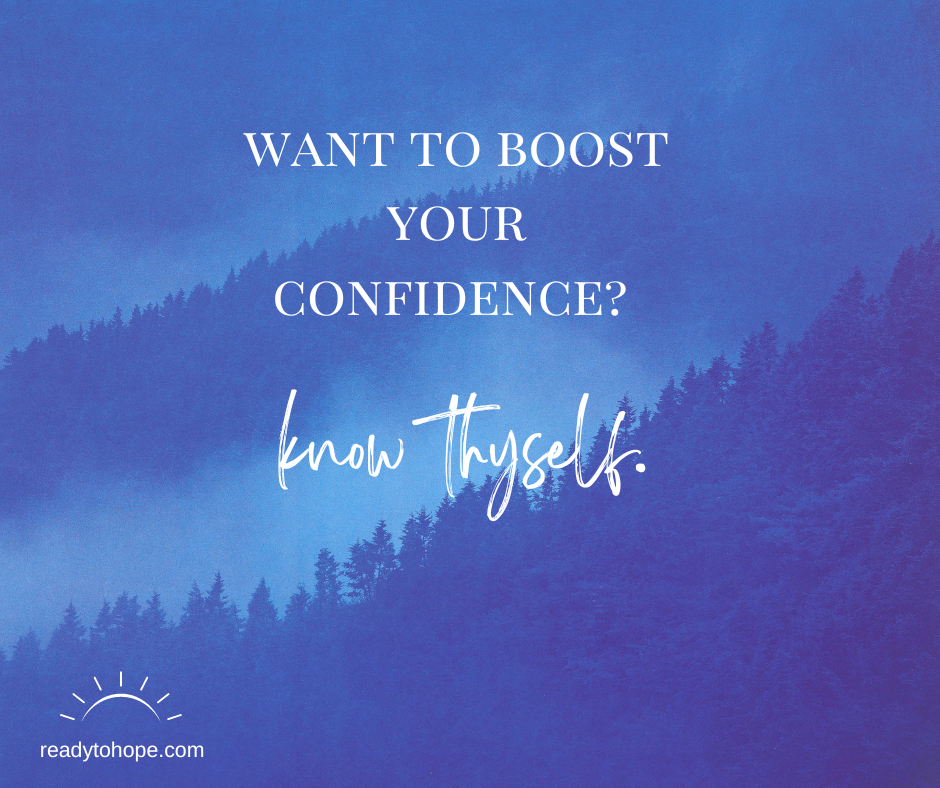Confidence Tip: Know Thyself

Lately, I have been thinking a lot about the idea of “knowing yourself” as a component of confidence. My thought is this: if you really kind of get the essence of who you are, it’s easier to accept and love yourself, just as you are. And when you accept and love yourself, just as you are, well, isn’t that the very definition of confidence?
Additionally, we all have things about us that we want to change, right? Here’s the deal: change comes from self-love. So let’s look at the example of wishing you had more discipline. You can feel frustrated with yourself that you maybe don’t work out as often as you’d like, or you struggle to get motivated to do important projects. What isn’t helpful? Beating yourself up. If YOU send yourself the message that you are somehow broken, or a failure, or incapable of doing the things you set out to… well, how’s that worked for you so far.
True change comes from a totally different place entirely. What if instead you told yourself, “I have struggled in the past to get motivated or stay motivated. But every day is a chance to try again. I know I am capable, I know I am worthy of love no matter what my past is. And I know I can keep on trying.”
Which mindset will get you further? The loving one, every time.
So, sometimes it’s just a matter of knowing who you ARE so you can begin to imagine who you can BECOME.
And there are wonderful tools that can help you gain insight into who you are. How you are wired, what your natural instincts and habits and ways of looking at the world may be.
My favorite tool for acquiring this information happens to be the MBTI, or Myers Briggs Type Indicator. As a counselor, both in schools and in practice, I’ve found this inventory to be incredibly insightful. And the good news is, the MBTI has been around for decades. The supporting evidence is there to say that this test does a great job of assessing your inclinations, interests, passions, and yes, even to a degree your talents.
The best part is, once you have your “type,” a four-letter code that is one of 16 different types, you can learn so incredibly much about maybe why you do some of the things you do, why you react to certain situations they way that you do, and why you are inclined to respond to your friends, your parents, your teachers, and so on a certain way.
You’ll be better able to understand why you may be exhausted after a party, while your best friend is energized (this is my life). You may be better able to understand why you need to see the big picture, whereas your friend needs the nitty-gritty details. All of these insights just help you as you interact in this world as a friend, a sister, and so on.
This site has a wonderful free version of the MBTI. Once you get your type, spend some time exploring what it’s all about. What does knowing your type do as far as helping you see why you respond in your relationships the way you do? Or how you respond to stress? Or even how you handle managing time, being healthier, or just generally taking care of yourself?
Share below, let’s discuss!
xo,
Cori

